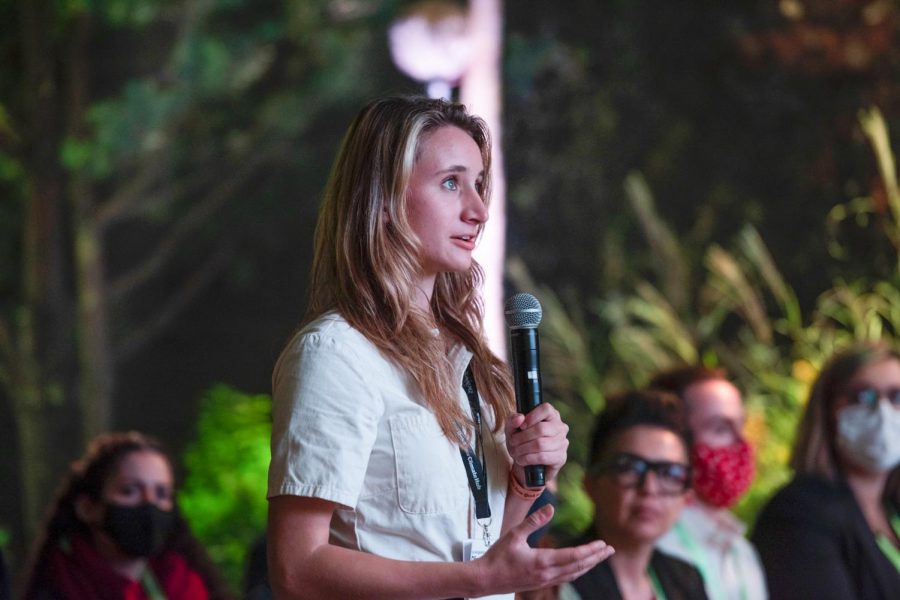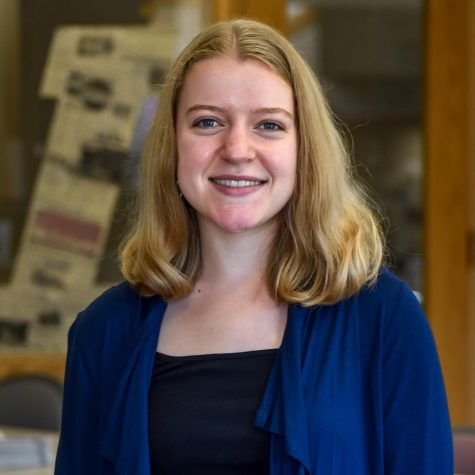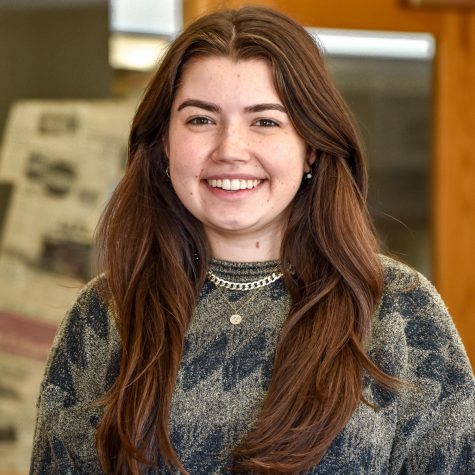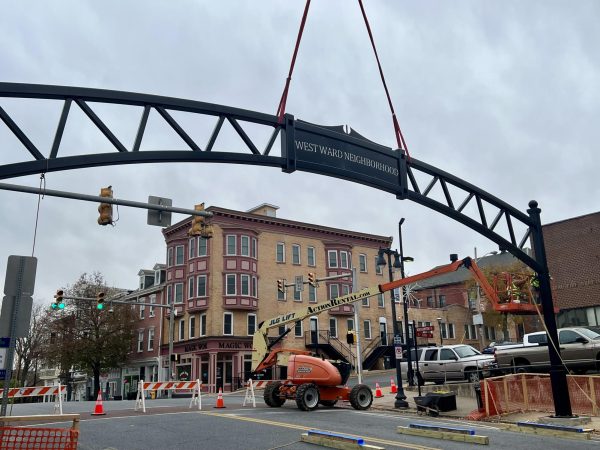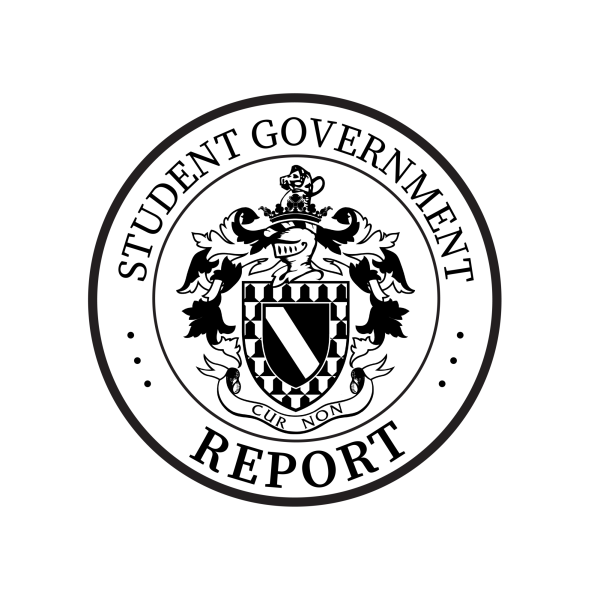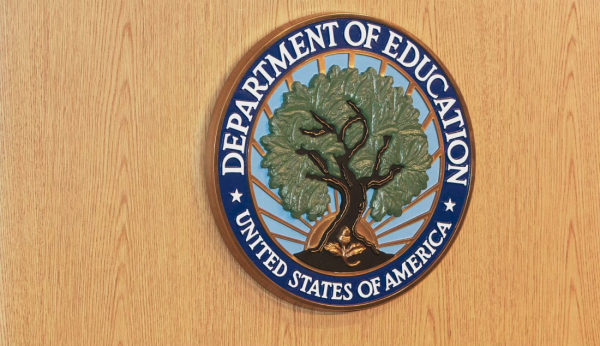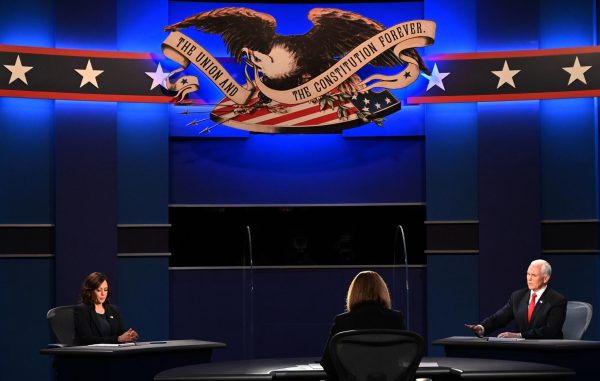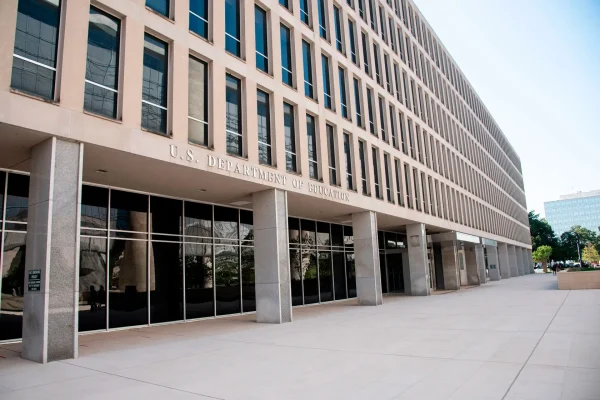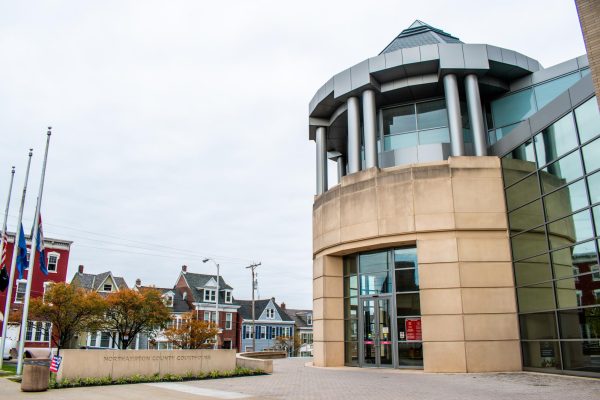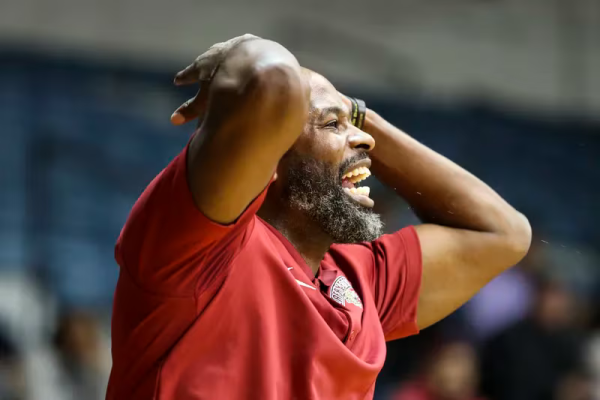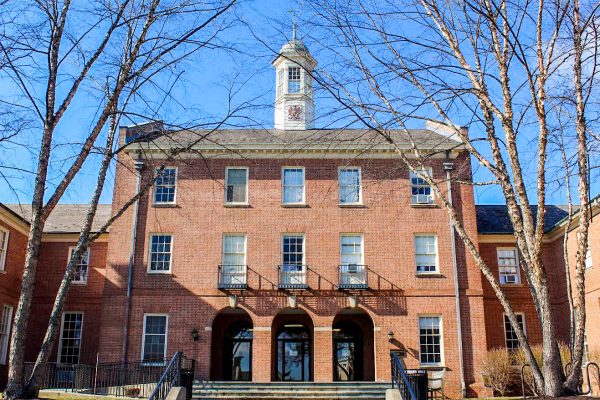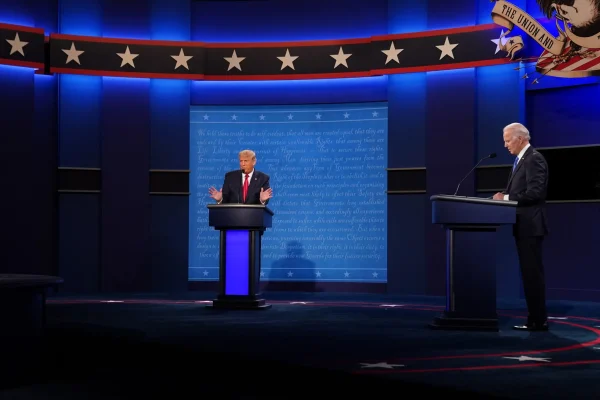A conversation with Editor-in-Chief Lucie Lagodich ’22 on her time at COP26 and New York Times Climate Hub
Lucie Lagodich asks a question to Pullitzer Prize-winning New York Times journalist Jeffrey Gettleman. (Photo by Craig Gibson for the New York Times)
November 19, 2021
Last week, The Lafayette Editor-in-Chief Lucie Lagodich ‘22 was away from the newsroom and college altogether, as she attended the COP26 conference and the New York Times Climate Hub in Glasgow, Scotland from Nov. 4-11.
The 2021 United Nations Climate Change Conference (COP) is the annual summit attended by almost every country in the world to discuss climate change and actions that should be taken to combat it. The Climate Hub, held parallel to the COP26, is a series of public discussions on sustainability as well as intersections between climate change and indigenous rights, women’s rights and racial justice.
This week, the managing editors of The Lafayette sat down with Lagodich to discuss her experience.
The Lafayette: Think back to two Thursdays ago (November 4). We had just submitted that week’s newspaper to the press, and you had 15 minutes to grab your things and run to the airport. What was going through your mind?
Lucie Lagodich: I was pretty scared. I felt excited, but it was my first time going abroad completely alone and without knowing anyone on the other end of the trip. So that was stressful, but I was looking forward to it because it was such a great opportunity.
The Lafayette: Once you landed, what was the first thing you did?
LL: I landed at five in the morning, their time. I went straight to the Airbnb where I was staying, the booking was hard to find in the first place because there were so many people in the city for the conference, so everything was reserved. When I got there, I ended up falling asleep for much longer than anticipated.
But then I woke up and went to two panels at the Climate Hub that same day. The second one was a chat with John Kerry, the first United States Special Presidential Envoy for Climate and former Secretary of State. At that talk, I asked [Kerry] a question, which was an insane way to start the trip. I remember calling my mom afterward and telling her, ‘I just asked John Kerry a question.’ And it just blew her mind.
The Lafayette: What did you ask him?
LL: I asked him about net-zero carbon emissions and if they are truly sustainable in the long term. His answer was no, which of course made sense, especially coming from the U.S. Envoy for Climate Change. But it really made me want to scream out, ‘Then do it!’
We’re hearing all these people saying the right things at this point, we’re hearing people at COP saying we need to reduce emissions, and they’re just not doing it. So it was a great way to start the conference, but it also gave me that early feeling of frustration about not knowing if the actual people in charge will make a difference.
The Lafayette: Did those feelings of frustration continue throughout the conference?
LL: I had those feelings less at the Climate Hub, which did such a good job blending topics such as climate justice, women’s rights, indigenous rights, racial justice, basically areas of climate that are intersectional but not often discussed.
But I think by the end of the ten days, especially when the results of the COP came out, my feelings officially turned into disappointment. Before they came out, on some level, there was hope. There was progress. But this COP was seen as one of the last chances to really curb our emissions before it’s too late. So when the report was released, I remember sitting down to dinner with someone I met there–a master’s student at Columbia University–and feeling this strong sense of disappointment about the COP26 negotiations. It was definitely a sad moment. Despite this being the first COP agreement to mention fossil fuels–which is considered a step forward–that shouldn’t be what is groundbreaking about the conference. It shouldn’t have taken 26 years. Additionally, the last-minute change in the final draft from “phase-out” coal to “phase-down,” was disheartening.
The Lafayette: What was the hardest to hear from the results of the conference?
LL: It was really just knowing that there are so many people fighting for what’s right, all these amazing people sharing their stories, going to this huge march and pushing for what’s right, but that’s not what’s making it to the top, which is frustrating and disappointing. Leaders from around the world are in the same city as these protesters, and the march had little impact on the negotiations.
The Lafayette: You mentioned the march. I heard 100,000 people were there, what was that like?
LL: Yeah, it was the biggest march Glasgow had ever seen. The city itself has less than 600,000 people, so this high turnout shows that this is something people really care about.
It was the day after I landed, Saturday, Nov. 6, and it was such an empowering experience. I spent the whole day marching. Everyone was very friendly, it was very calm. The march itself was specifically focused on climate justice, so it was led by leaders of Indigenous groups from around world, primarily from the global South.
The Lafayette: Was anyone missing from the march or from the conference overall?
LL: There were a lot of people who should have been at COP that were not there, such as people from developing countries where it’s more difficult for people to travel to Glasgow. That was very frustrating. It felt like, to some extent, it was wealthy nations discussing the fate of developing countries that are facing the brunt force of climate change.
The Lafayette: I imagine you were on the younger side of the attendees. Did you meet any other students there? Did you feel like there was a sort of unity between those of the younger generation?
LL: Definitely. I remember the last night at the closing ceremony, someone I’d met pulled me over to a group of other students, all youth activists. We all just started talking and hanging out, and it was a very cool experience. Some of the friends I made were a part of the closing ceremony of the Climate Hub, where Little Amal gave a moving performance dragging in a dead and burnt tree and concluded with a handful of young activists mourning its death. Our generation is the one that will truly need to fight to decrease carbon emissions whilst dealing with the worst effects of it, so it was inspirational and heartwarming to know that we can work together, that no one is alone in this fight.
The Lafayette: Since you have been back on campus, have you thought about how you’d like to take what you know and apply it to Lafayette before you graduate?
LL: This conference cemented for me the idea that it is not just important but necessary to talk about the climate crisis in terms of climate justice. Therefore, I would like to form a stronger bond between our sustainability committee on student government and the equity and inclusion committee that will hopefully last even after I graduate.
And I’m hoping that my trip isn’t an anomaly. I hope other students in the future will get to go so it can become more of a normalized thing.



































































































